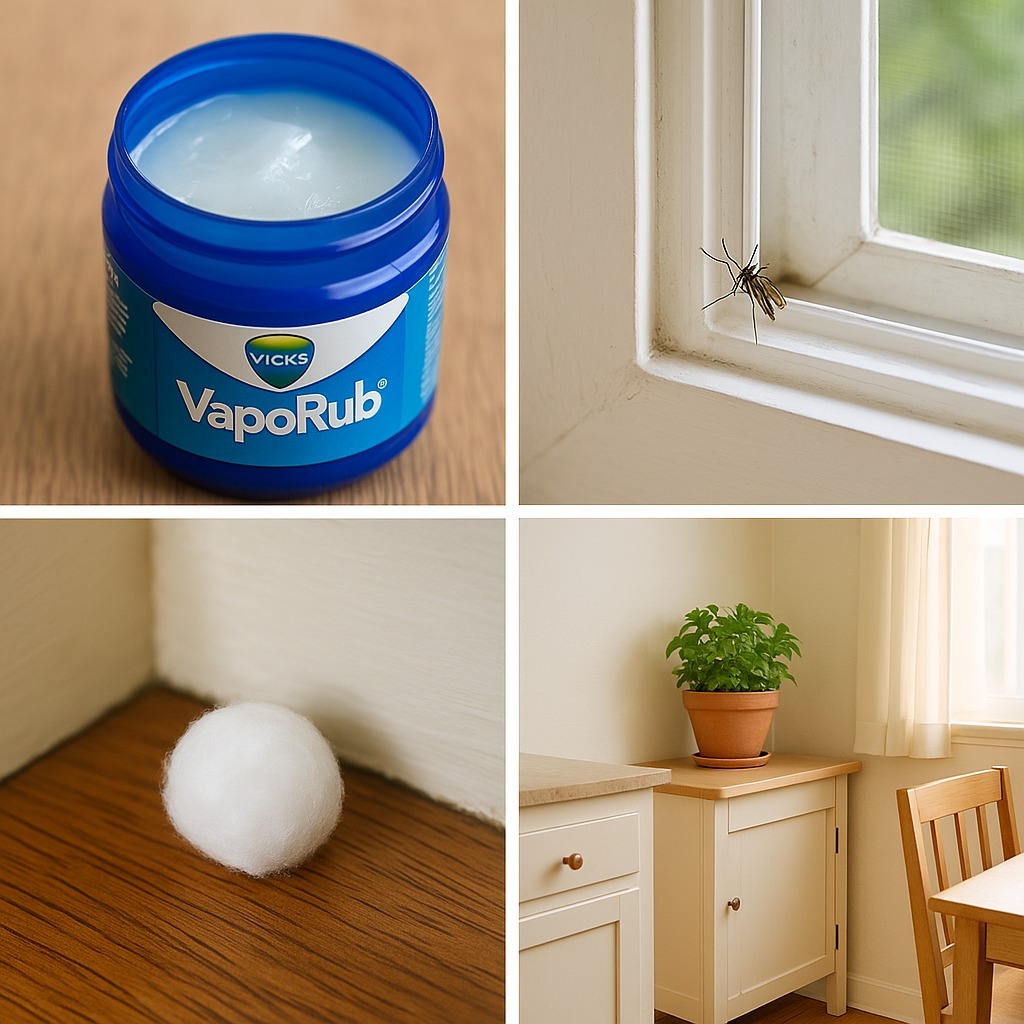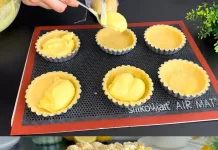
Vicks VapoRub is a household staple renowned for alleviating cold symptoms. However, beyond its traditional uses, this mentholated ointment has garnered attention for its potential in natural pest control. Leveraging its strong aroma and specific ingredients, Vicks VapoRub may serve as a deterrent for various household pests. This article explores the applications, effectiveness, and considerations of using Vicks VapoRub as a pest repellent.Wikipedia+9Verywell Health+9Byrdie+9Wikipedia
Understanding the Components
Vicks VapoRub contains several active ingredients:
- Camphor (4.8%): Known for its strong scent and potential insect-repelling properties.
- Menthol (2.6%): Provides a cooling sensation and contributes to the ointment’s distinctive aroma.
- Eucalyptus oil (1.2%): Often used in natural remedies for its purported insect-repelling qualities.TikTok
These components collectively produce a potent scent that may deter certain pests.
Applications in Pest Control
- Mosquitoes and Gnats:
- Applying small amounts of Vicks VapoRub to exposed skin areas, such as arms and legs, may help repel mosquitoes and gnats.
- Placing open containers of Vicks in outdoor spaces could potentially deter flying insects .Hometalk.com
- Ants:
- Creating barriers by spreading a thin line of Vicks along entry points like windowsills and doorways may disrupt ant trails.
- Applying Vicks near ant hills or along their paths might deter their movement .
- Flies:
- Using Vicks on windows, door frames, or garbage lids may discourage flies from congregating.
- Keeping an open jar of Vicks in the kitchen or near fruit bowls could help repel fruit flies .
- Spiders:
- Applying Vicks in corners, under furniture, or in closets may deter spiders from settling in these areas.
- Rodents:
- Placing cotton balls dabbed with Vicks in areas frequented by mice or rats might discourage their presence due to the strong scent .Hometalk.com+1Yahoo+1
- Slugs and Snails:
- Coating the rims of plant pots or garden beds with Vicks may deter slugs and snails, protecting plants from damage .Hometalk.com
Scientific Perspective
While anecdotal evidence supports the use of Vicks VapoRub in repelling certain pests, scientific studies on its efficacy are limited. Some research suggests that components like camphor and eucalyptus oil possess insect-repelling properties. However, the concentrations present in Vicks VapoRub may not be sufficient for consistent pest control. For instance, a study highlighted that while camphor and eucalyptus exhibit repellency against specific mosquito species, the levels in Vicks may not offer prolonged protection .Verywell Health+4House Digest+4Nature Guard Tulsa+4Health Dialogues
Safety Considerations
- Skin Sensitivity: Before applying Vicks VapoRub to the skin, conduct a patch test to ensure no allergic reactions occur.
- Children and Pets: Keep Vicks out of reach of children and pets. Ingestion can be harmful, and certain animals may be more sensitive to its components.
- Surface Application: When applying Vicks to surfaces, test a small area first to ensure it doesn’t cause discoloration or damage.Nature Guard Tulsa+3Byrdie+3Verywell Health+3
Conclusion
Vicks VapoRub, traditionally used for cold relief, may offer a natural alternative for deterring certain household pests. Its strong aroma and specific ingredients can act as a deterrent for insects and rodents. However, while anecdotal evidence supports its use, scientific validation is limited. For significant infestations or persistent pest problems, consulting with pest control professionals or using proven repellents is recommended.



